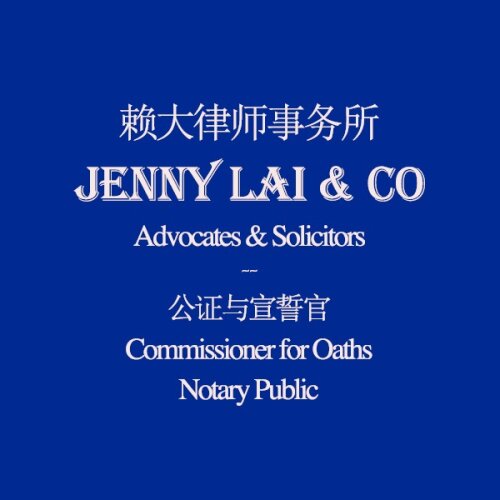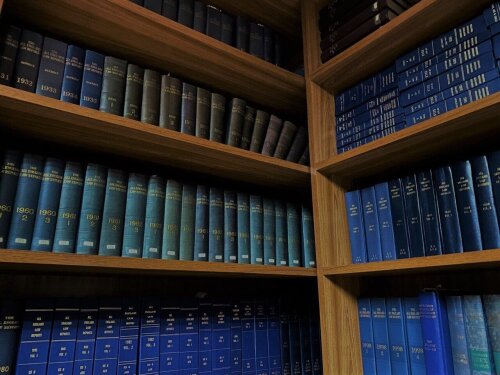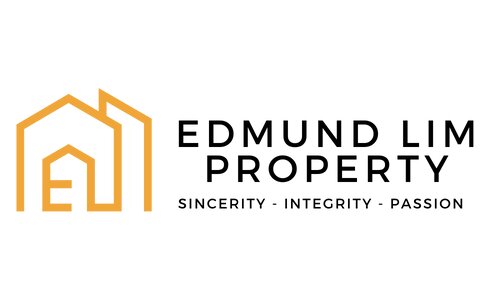Best Conveyancing Lawyers in Singapore
Share your needs with us, get contacted by law firms.
Free. Takes 2 min.
Free Guide to Hiring a Real Estate Lawyer
Or refine your search by selecting a city:
List of the best lawyers in Singapore
About Conveyancing Law in Singapore
Conveyancing in Singapore refers to the legal process of transferring property ownership from one party to another. This typically involves residential, commercial, or industrial properties and covers both the purchase and sale of properties, as well as the granting or assignment of leases. The process is governed by a combination of statutory laws and established procedures to ensure property transactions are conducted smoothly, transparently, and in accordance with Singapore’s rigorous legal standards.
Why You May Need a Lawyer
Engaging a lawyer for conveyancing in Singapore is often necessary due to the complexity, high value, and regulatory nature of property transactions. Common situations where legal assistance is required include:
- Buying or selling residential or commercial property
- Transferring property ownership to family members
- Handling mortgage documentation with banks or financial institutions
- Managing the legal implications of inheritance or divorce property settlements
- Rectifying title deeds and addressing encumbrances
- Dealing with property disputes or clarifying legal rights and obligations
A lawyer’s expertise ensures that all documentation is correctly prepared and lodged, timelines are met, and your interests are protected throughout the transaction.
Local Laws Overview
Conveyancing in Singapore is primarily governed by several pieces of legislation, administrative requirements, and property registration processes. Some key statutes and guidelines include:
- Land Titles Act - Establishes the system of land registration known as the Torrens system, ensuring indefeasibility and certainty of property title.
- Conveyancing and Law of Property Act - Sets out provisions relating to the transfer of property, mortgages, trusts, and related matters.
- Residential Property Act - Regulates foreign ownership of certain types of property.
- Stamp Duties Act - Imposes taxes on property transfers and other documents.
- Housing and Development Act - Governs HDB flats, their purchase, sale, and eligibility criteria.
- Conveyancing (Miscellaneous Amendments) Act - Introduces measures to enhance security in conveyancing, including the use of conveyancing accounts for client funds.
- Land Titles (Strata) Act - Deals with strata-titled properties such as condominiums.
All property transactions must adhere to these laws, including the execution and stamping of contracts, due diligence on title ownership, completion of statutory requirements, and proper registration with the Singapore Land Authority (SLA).
Frequently Asked Questions
What is conveyancing and why is it important?
Conveyancing is the legal process of transferring property ownership. It is important because it protects the interests of both buyers and sellers, ensuring the transaction is legally binding, all requirements are met, and the property title is clear of encumbrances.
Must I hire a lawyer for property transactions in Singapore?
Yes, it is strongly advised and, in many instances, required. For HDB flat transactions, you can use HDB-appointed lawyers, but for private properties, lawyers are essential to ensure compliance with all legal matters and stakeholder interests.
What are the main steps involved in the conveyancing process?
The main steps include title searches, drafting and exchanging option to purchase (OTP) and sale and purchase (S&P) agreements, liaising with banks for financing, submitting documents for stamping, performing legal checks, completion, and registration of the transfer with the Singapore Land Authority.
How long does the conveyancing process typically take?
For HDB flats, the timeline is usually about 8 to 12 weeks from transaction start to completion. For private properties, the process generally takes 10 to 12 weeks, depending on the complexity and whether there is a mortgage involved.
What costs are involved in conveyancing?
Costs include legal fees for the conveyancing work, stamp duty, survey fees (if required), registration fees, and any government-imposed charges. Both buyers and sellers may incur different costs based on their side of the transaction.
What is an Option to Purchase (OTP)?
An OTP is a legal document that gives a buyer the right, but not the obligation, to purchase a property within a specified timeframe, usually secured by a deposit payment.
What if there are existing loans or encumbrances on the property?
The lawyer will conduct checks and ensure all encumbrances such as outstanding mortgages are settled or discharged before completion of the property transfer.
How is the property title registered?
After the transaction is completed, the lawyer submits the necessary documentation to the Singapore Land Authority so the new ownership is recorded in the Land Titles Registry.
Can foreigners buy property in Singapore?
Foreigners can buy certain private properties such as condominiums, but restrictions apply to landed property, HDB flats, and some government land. Approval from the authorities may be required in restricted cases.
What are some common pitfalls in conveyancing?
Common issues include unclear property titles, missing deadlines for legal documents, insufficient due diligence, incomplete or inaccurate documentation, and failure to check for caveats or encumbrances.
Additional Resources
If you are seeking more information or need assistance, the following organizations and resources can provide valuable support:
- Singapore Land Authority (SLA) - The main agency for land administration, property title registration, and strata titles.
- Urban Redevelopment Authority (URA) - Regulatory body for land use and property planning.
- Housing and Development Board (HDB) - Handles all public housing matters, including flat transactions, eligibility, and resale processes.
- Singapore Law Society - Offers resources for finding and engaging qualified conveyancing lawyers.
- Ministry of Law (MinLaw) - Provides information on conveyancing regulations and legal reforms.
Next Steps
If you are considering a property transaction, follow these steps to ensure your interests are protected:
- Begin with research: Understand the type of property you are dealing with and any restrictions that may apply.
- Engage a qualified conveyancing lawyer early in the process to advise you and handle all legal matters.
- Prepare all personal and financial documentation required for the transaction.
- Work closely with your lawyer to ensure all files, contracts, and timelines are properly managed.
- If in doubt or confronted with a potential dispute, seek guidance from the Singapore Law Society or relevant authorities.
- Keep yourself updated on regulatory changes that may affect your property transaction.
Taking early and proactive action with professional legal support is critical for a smooth and secure conveyancing experience in Singapore.
Lawzana helps you find the best lawyers and law firms in Singapore through a curated and pre-screened list of qualified legal professionals. Our platform offers rankings and detailed profiles of attorneys and law firms, allowing you to compare based on practice areas, including Conveyancing, experience, and client feedback.
Each profile includes a description of the firm's areas of practice, client reviews, team members and partners, year of establishment, spoken languages, office locations, contact information, social media presence, and any published articles or resources. Most firms on our platform speak English and are experienced in both local and international legal matters.
Get a quote from top-rated law firms in Singapore — quickly, securely, and without unnecessary hassle.
Disclaimer:
The information provided on this page is for general informational purposes only and does not constitute legal advice. While we strive to ensure the accuracy and relevance of the content, legal information may change over time, and interpretations of the law can vary. You should always consult with a qualified legal professional for advice specific to your situation.
We disclaim all liability for actions taken or not taken based on the content of this page. If you believe any information is incorrect or outdated, please contact us, and we will review and update it where appropriate.
Browse conveyancing law firms by city in Singapore
Refine your search by selecting a city.















